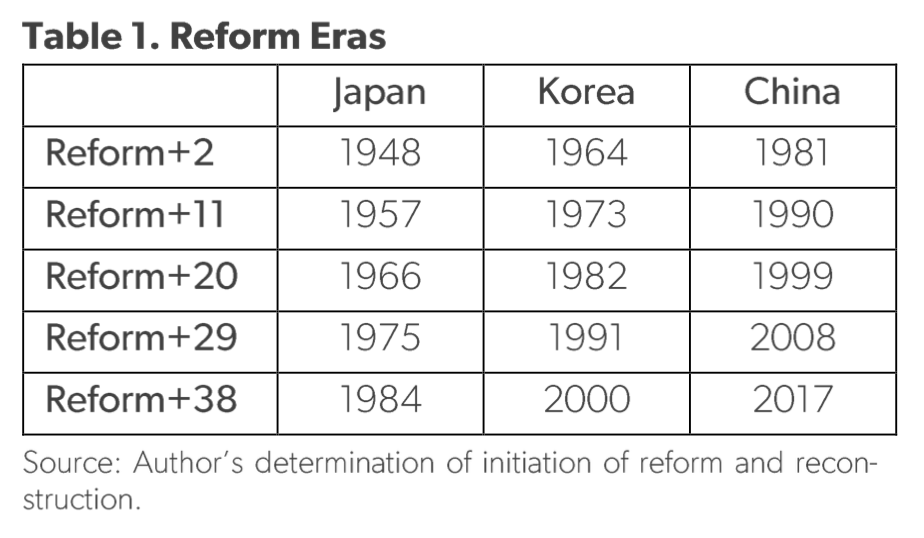Chief Seattle’s Speech /1854
Yonder sky that has wept tears of compassion upon my people for centuries untold, and which to us appears changeless and eternal, may change. Today is fair. Tomorrow it may be overcast with clouds. My words are like the stars that never change. Whatever Seattle says, the great chief at Washington can rely upon with as much certainty as he can upon the return of the sun or the seasons. The white chief says that Big Chief at Washington sends us greetings of friendship and goodwill. This is kind of him for we know he has little need of our friendship in return. His people are many. They are like the grass that covers vast prairies. My people are few. They resemble the scattering trees of a storm-swept plain. The great, and I presume — good, White Chief sends us word that he wishes to buy our land but is willing to allow us enough to live comfortably. This indeed appears just, even generous, for the Red Man no longer has rights that he need respect, and the offer may be wise, also, as we are no longer in need of an extensive country.
There was a time when our people covered the land as the waves of a wind-ruffled sea cover its shell-paved floor, but that time long since passed away with the greatness of tribes that are now but a mournful memory. I will not dwell on, nor mourn over, our untimely decay, nor reproach my paleface brothers with hastening it, as we too may have been somewhat to blame.
Youth is impulsive. When our young men grow angry at some real or imaginary wrong, and disfigure their faces with black paint, it denotes that their hearts are black, and that they are often cruel and relentless, and our old men and old women are unable to restrain them. Thus it has ever been. Thus it was when the white man began to push our forefathers ever westward. But let us hope that the hostilities between us may never return. We would have everything to lose and nothing to gain. Revenge by young men is considered gain, even at the cost of their own lives, but old men who stay at home in times of war, and mothers who have sons to lose, know better.
Our good father in Washington–for I presume he is now our father as well as yours, since King George has moved his boundaries further north–our great and good father, I say, sends us word that if we do as he desires he will protect us. His brave warriors will be to us a bristling wall of strength, and his wonderful ships of war will fill our harbors, so that our ancient enemies far to the northward — the Haidas and Tsimshians — will cease to frighten our women, children, and old men. Then in reality he will be our father and we his children. But can that ever be? Your God is not our God! Your God loves your people and hates mine! He folds his strong protecting arms lovingly about the paleface and leads him by the hand as a father leads an infant son. But, He has forsaken His Red children, if they really are His. Our God, the Great Spirit, seems also to have forsaken us. Your God makes your people wax stronger every day. Soon they will fill all the land. Our people are ebbing away like a rapidly receding tide that will never return. The white man’s God cannot love our people or He would protect them. They seem to be orphans who can look nowhere for help. How then can we be brothers? How can your God become our God and renew our prosperity and awaken in us dreams of returning greatness? If we have a common Heavenly Father He must be partial, for He came to His paleface children. We never saw Him. He gave you laws but had no word for His red children whose teeming multitudes once filled this vast continent as stars fill the firmament. No; we are two distinct races with separate origins and separate destinies. There is little in common between us.
To us the ashes of our ancestors are sacred and their resting place is hallowed ground. You wander far from the graves of your ancestors and seemingly without regret. Your religion was written upon tablets of stone by the iron finger of your God so that you could not forget. The Red Man could never comprehend or remember it. Our religion is the traditions of our ancestors — the dreams of our old men, given them in solemn hours of the night by the Great Spirit; and the visions of our sachems, and is written in the hearts of our people.
Your dead cease to love you and the land of their nativity as soon as they pass the portals of the tomb and wander away beyond the stars. They are soon forgotten and never return. Our dead never forget this beautiful world that gave them being. They still love its verdant valleys, its murmuring rivers, its magnificent mountains, sequestered vales and verdant lined lakes and bays, and ever yearn in tender fond affection over the lonely hearted living, and often return from the happy hunting ground to visit, guide, console, and comfort them.
Day and night cannot dwell together. The Red Man has ever fled the approach of the White Man, as the morning mist flees before the morning sun. However, your proposition seems fair and I think that my people will accept it and will retire to the reservation you offer them. Then we will dwell apart in peace, for the words of the Great White Chief seem to be the words of nature speaking to my people out of dense darkness.
It matters little where we pass the remnant of our days. They will not be many. The Indian’s night promises to be dark. Not a single star of hope hovers above his horizon. Sad-voiced winds moan in the distance. Grim fate seems to be on the Red Man’s trail, and wherever he will hear the approaching footsteps of his fell destroyer and prepare stolidly to meet his doom, as does the wounded doe that hears the approaching footsteps of the hunter.
A few more moons, a few more winters, and not one of the descendants of the mighty hosts that once moved over this broad land or lived in happy homes, protected by the Great Spirit, will remain to mourn over the graves of a people once more powerful and hopeful than yours. But why should I mourn at the untimely fate of my people? Tribe follows tribe, and nation follows nation, like the waves of the sea. It is the order of nature, and regret is useless. Your time of decay may be distant, but it will surely come, for even the White Man whose God walked and talked with him as friend to friend, cannot be exempt from the common destiny. We may be brothers after all. We will see.
We will ponder your proposition and when we decide we will let you know. But should we accept it, I here and now make this condition that we will not be denied the privilege without molestation of visiting at any time the tombs of our ancestors, friends, and children. Every part of this soil is sacred in the estimation of my people. Every hillside, every valley, every plain and grove, has been hallowed by some sad or happy event in days long vanished. Even the rocks, which seem to be dumb and dead as the swelter in the sun along the silent shore, thrill with memories of stirring events connected with the lives of my people, and the very dust upon which you now stand responds more lovingly to their footsteps than yours, because it is rich with the blood of our ancestors, and our bare feet are conscious of the sympathetic touch. Our departed braves, fond mothers, glad, happy hearted maidens, and even the little children who lived here and rejoiced here for a brief season, will love these somber solitudes and at eventide they greet shadowy returning spirits. And when the last Red Man shall have perished, and the memory of my tribe shall have become a myth among the White Men, these shores will swarm with the invisible dead of my tribe, and when your children’s children think themselves alone in the field, the store, the shop, upon the highway, or in the silence of the pathless woods, they will not be alone. In all the earth there is no place dedicated to solitude. At night when the streets of your cities and villages are silent and you think them deserted, they will throng with the returning hosts that once filled them and still love this beautiful land. The White Man will never be alone.
Let him be just and deal kindly with my people, for the dead are not powerless. Dead, did I say? There is no death, only a change of worlds.
西雅图酋长(1790~1866),Dwamish和Suquamish等部族所共的印第安大酋长。1855年迫于白人的压力,与美国政府签订《埃利奥特条约》,出让印第安土地和建立印弟安人保留地。这是他在订约之前给美国政府的答复。
给美国政府的答复
数不尽的世代以来,渺渺苍天曾为我族洒下多少同情之泪;这个在我们看来像是永恒不变的苍天,还是会变的。今天天色晴朗,明天又阴云密布。但我所说的话却像天空里的星辰,永远不变。西雅图说的话,正如日自东出,春去秋来,华盛顿的大酋长可以确信无疑。白人酋长说:华盛顿的大酋长向我们致意,表示友好。我们感谢他的好意,因为我知道他无所求于我们,不用我们以友情回报。他的人民众多,犹如覆盖着广阔原野的青草。我的人民稀少,像风催雨袭后的平原上稀疏的树木。那位伟大的—我还假定他是善良的—白人酋长派遣人告诉我们,愿意买下我们的上地,但同时也愿意留下足够的土地让我们舒适地生活。这看来确实很公道,甚至很慷慨,因为红种人已经再也没有什么需要得到他尊重的权利了。他出的代价可能也是合宜的,因为我们现在已经不再需要辽阔的地域。。。。。。我不愿再详述我们民族过早的衰微,也不再为此哀叹,不责备白种兄弟加速了我们的衰败,因为我们或许多少也应该责怪自己。
。。。。。。。
白昼与黑夜不能相遇,红种人对白种人从来就是敬而远之的,就像朝雾在旭日升起前就要消散一样。然而,你们的建议看来是公道的,我想我的人民会接受建议,退居到你给他们的保留地。这样我们就能分处两地,和平共存。因为白人大酋长对我人民所说的话,有如大自然从沉沉黑暗中发出来的声音。
我们在什么地方度过余年已经无关紧要。我们的来日不多了。这原来比你们更强大,更有希望的民族,曾经人口兴旺,受大神的庇护,在这广阔的土地上幸福地安居乐业。再过几月,再过几冬,这个民族再也不会有一个后裔留下在它的墓前致哀了。但我又何必为我民族的夭忻哀叹呢? 一个部落没落,另一个部落就会振兴;一个民族衰亡,另一民族便会崛起。像海潮一样,后浪逐前浪。这是自然的法则。悲叹惋惜是无用的,你们衰落的时间可能还很遥远,却必定到来。因为即使是能够同上帝像朋友一样亲密无间的白人,也不能免于同样的命运。我们终究会成为兄弟的,等着瞧吧。
我们会考虑你们的建议的,等到我们作出决定,就会通知你们。但是如果我们接受这项建议,我现在在这里就要提出一个保留条件:我们要求有权随时不受干扰地扫谒我们祖先、朋友和子孙的坟墓。这里每一寸土地对于我的人民都是神圣的:每一片山坡、每一个河谷、每一块平原、每一丛小树都由于往日的哀愁与欢乐而变得无比圣洁。。。。。。。地上的尘土在我们脚下比在你们脚下更柔软舒适,因为那上面浸满我们祖先的鲜血,我们赤裸的脚踩上土地之时更觉其上充满深情。。。。。。甚至只是在这里短暂地居住,嬉戏过的幼童也会热爱这阴沉沉的荒地。在暮色降临之时,他们会迎接那些幽暗朦胧的阴魂归来。当最后一个红种人死去,白人对这个部落的回忆已经成为神话之时,我部落的那些看不见的亡灵,仍将密密地聚集在这片土地上。当你们的子孙以为他们独自在田野、仓库、商店、公路或寂静的、无路可通的森林中时,他们也不是独自一人。。。。。。夜深人静,你以为城镇村落阒无一人时,街上将是满坑满谷归来的旧主。他们过去曾住在这里,他们仍然热爱这块美丽的土地。白人永远不会独占这个地方。
愿他公平、正直、善意地对待我的人民。因为死者并没有失去力量。我说到死者吗?不,死者并没有死,他们只不过到另一个世界去了。







暂无评论内容